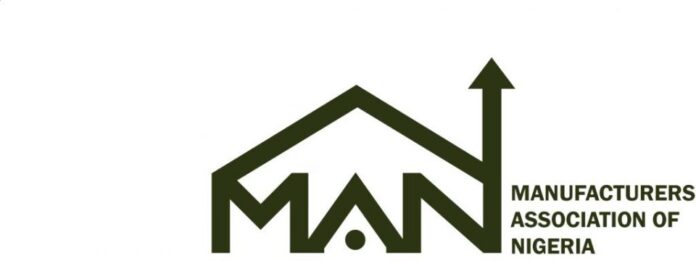Manufacturers record N2tn unsold finished goods
CHIGOZIE AMADI
The Manufacturers Association of Nigeria has reported a rise in the amount of unsold finished goods in 2024, stating that it rose to N2.14tn and attributed this to weakened consumer demand, surging production costs, and eroded purchasing power.
MAN Director-General Segun Ajayi-Kadir, on Monday, disclosed this in the association’s latest economic review report for the second half of 2024.
“The inventory of unsold finished goods surged by 87.5 per cent to N2.14tn in 2024,” Ajayi-Kadir said, blaming “escalating production costs and declining consumer demand” for the development. However, he noted that a half-year decline of 27.9 per cent suggested some improvement in inventory clearance and pricing strategies.
Ajayi-Kadir stated that the food, beverage, and tobacco sector, along with the textile, apparel, and footwear sector, were the worst hit, recording the highest volume of unsold products.
The association linked the situation to the country’s broader economic challenges, including inflation, exchange rate volatility, and the impact of monetary tightening.
According to the report, inflation rose to 34.8 per cent in 2024, significantly squeezing consumer spending and increasing manufacturers’ operational expenses.
MAN said the Central Bank of Nigeria’s increase of the Monetary Policy Rate to 27.5 per cent pushed lending rates to an average of 35.5 per cent, with total finance costs for manufacturers surging to N1.3tn.
“This monetary policy stance limited access to credit and restrained expansion plans across the industry,” Ajayi-Kadir said.
Notwithstanding a marginal improvement in capacity utilisation to 57 per cent, up from 55.1 per cent in 2023, the association lamented persistent structural issues, including unreliable power supply and high energy costs.
Meanwhile, the Former President of the Chartered Institute of Bankers, Prof Segun Ajibola, evaluated in a phone interview with The PUNCH that the N2.14tn in unsold inventory is a “dangerous symptom for manufacturers.”
Ajibola observed that Nigeria’s manufactured products, which rely largely on imported raw materials and are unaffordable due to foreign exchange influences, lead to inevitable consumer resistance.
He explained: “At a point in the production process, consumer resistance becomes inevitable if prices become out of reach based on their purchasing power; they will resist. And when the consumer resists, the first sign is what we see: a backlog of unsold goods.
“This usually leads to a factory closing down or relocating when operations become unprofitable, as consumers are not buying. And they are not buying because they cannot afford the price. This is a very dangerous symptom for manufacturers.”
Ajibola maintained that when manufacturers utilise their capacity, produce, and push to the market, how far they can go in selling their wares depends on the size and scope of the market, domestic or international. Thus, if the utilised capacity is beyond the local market, there will be a backlog of unsold goods.
According to the economist, consumers’ purchasing power determines how manufacturers sell their stock to reduce unsold finished goods in their inventory.
“It is a simple logic in management called Maslow’s Theory of Needs. A person who wants to eat and survive won’t see products like bottles of Coke as a matter of life and death,” the economist asserted. “And these are products coming from the manufacturing sector.
“So, if you want to spend more on garri, yam, rice, potato, tomato, or beans, the manufacturers in that economy will undergo severe challenges. The truth is that (manufactured goods) become luxurious at that point, because consumers struggling to survive see them as non-essential.”
Ajibola encouraged manufacturers to do more to avoid losing their industry. He called on MAN to enhance stakeholders’ collaboration to improve local sourcing for raw materials.
He also called on manufacturers to fund research to solve problems of converting Nigeria’s raw materials to finished products, stating, “If we pay more attention to developing these local raw materials for our industries, they will have less exposure to the foreign exchange market.”
Further, MAN reported that its total expenditure on alternative energy sources jumped by 42.3 per cent to N1.11tn in 2024, as industries struggle with erratic power supply and frequent national grid collapses.
“Although electricity supply improved to an average of 13.3 hours daily, power outages and surging Band A tariffs increased production costs significantly,” the report noted.
Real sector output grew modestly by 1.7 per cent to N7.78tn, but a half-year decline of 3.1 per cent highlighted constraints.
MAN also reported a 35.3 per cent drop in real manufacturing investment to N658.81bn, citing heightened economic uncertainty.
Ajayi-Kadir said, “The Nigerian manufacturing sector faced significant headwinds in 2024. While we observed some resilience in local raw material sourcing and marginal output growth, overall performance was hampered by adverse macroeconomic conditions.”
The association called for urgent policy interventions to stabilise the macroeconomic environment, ease access to financing, and reduce the cost of doing business to avert further sectoral contraction.






















